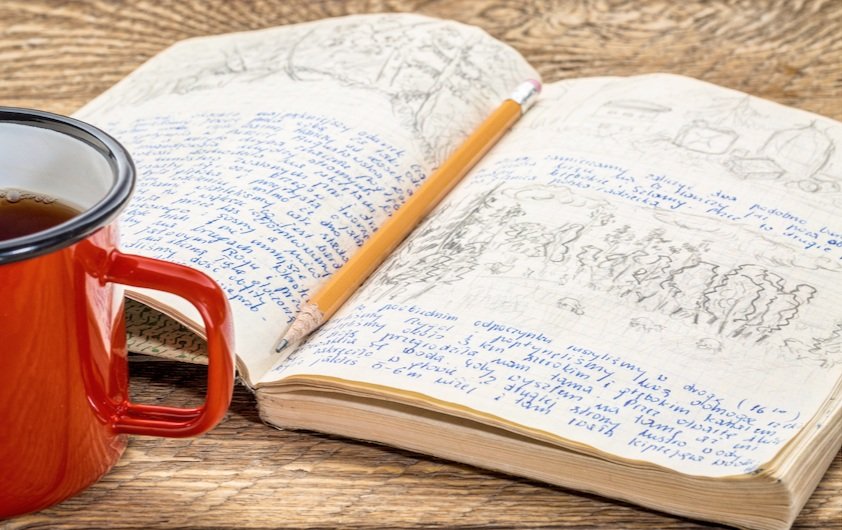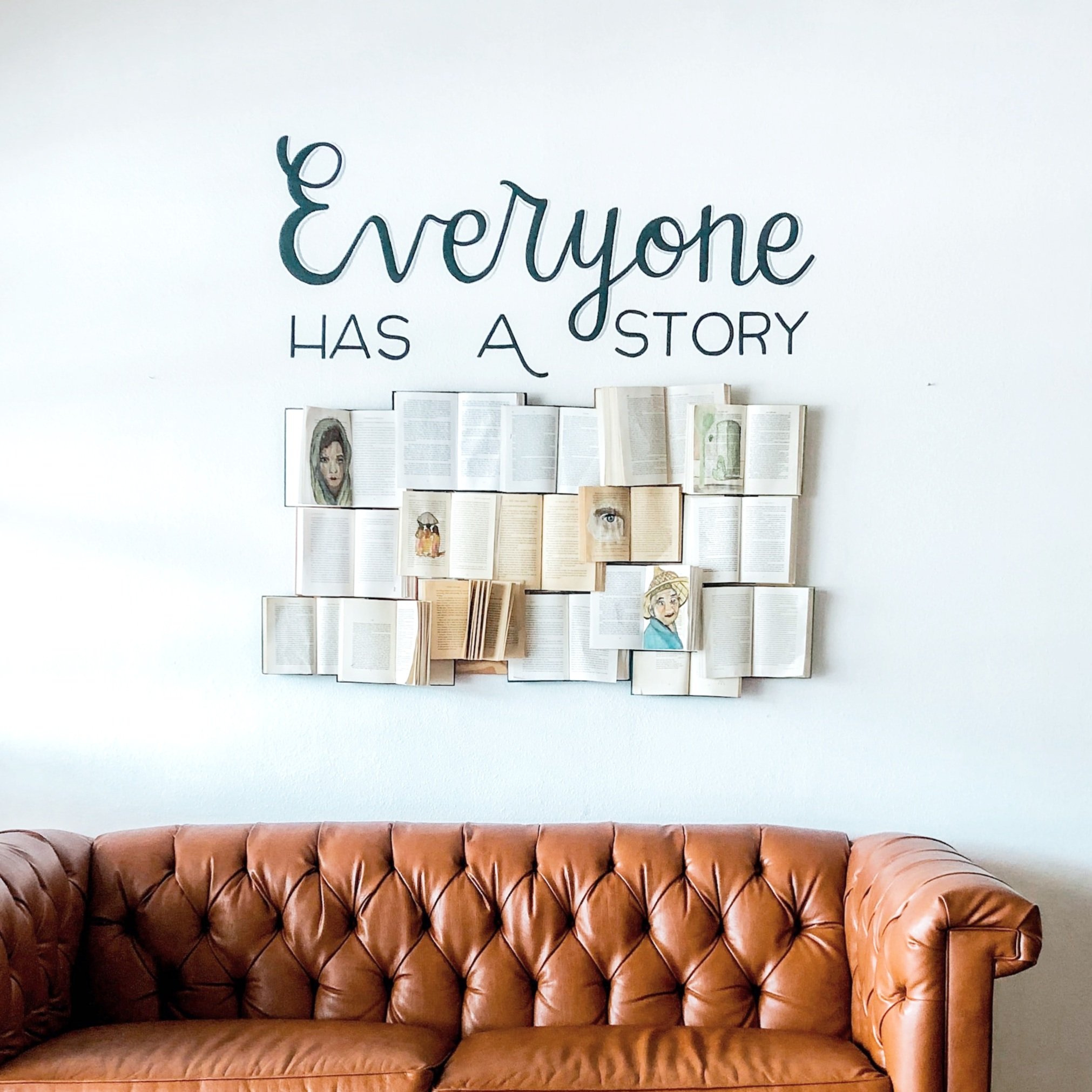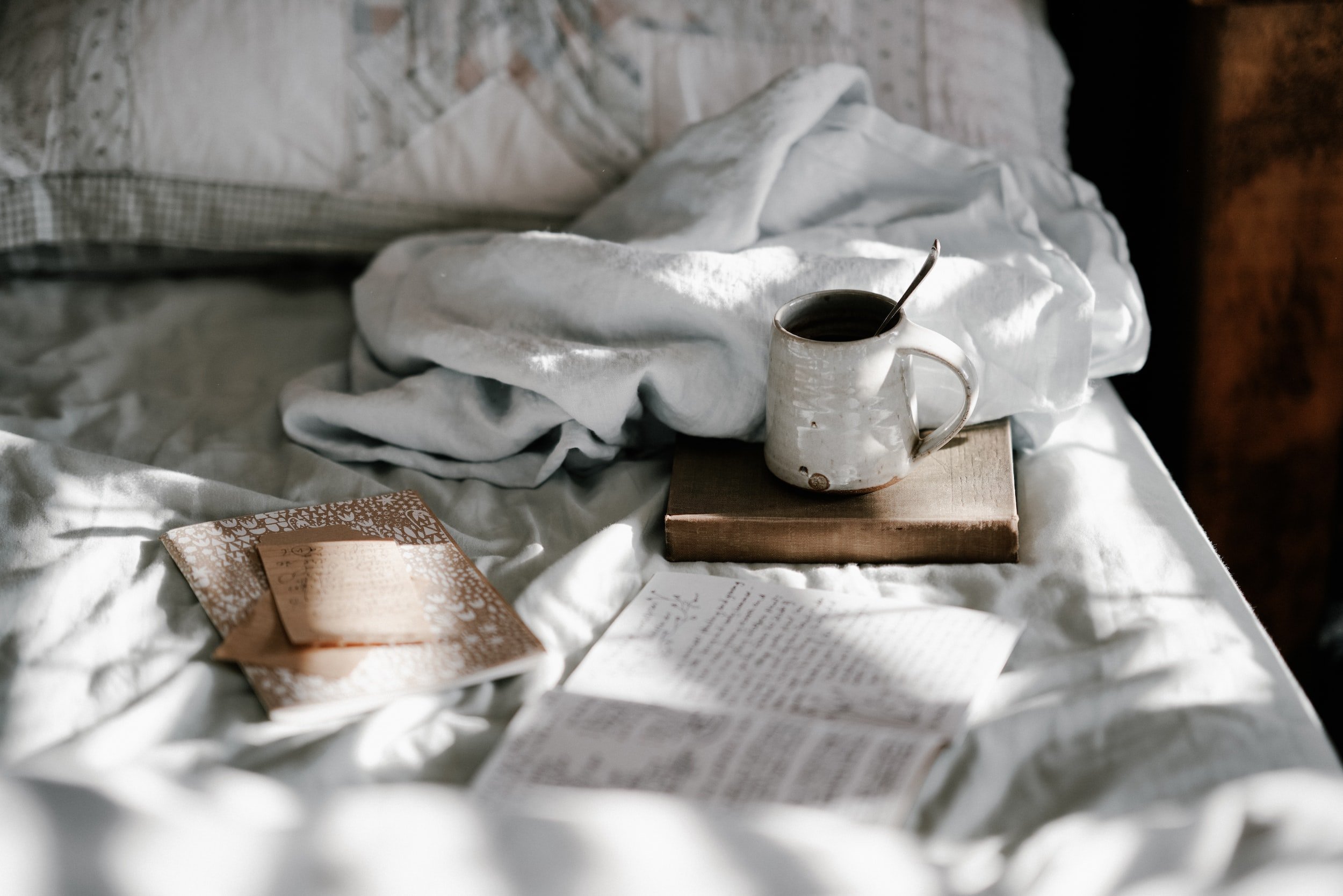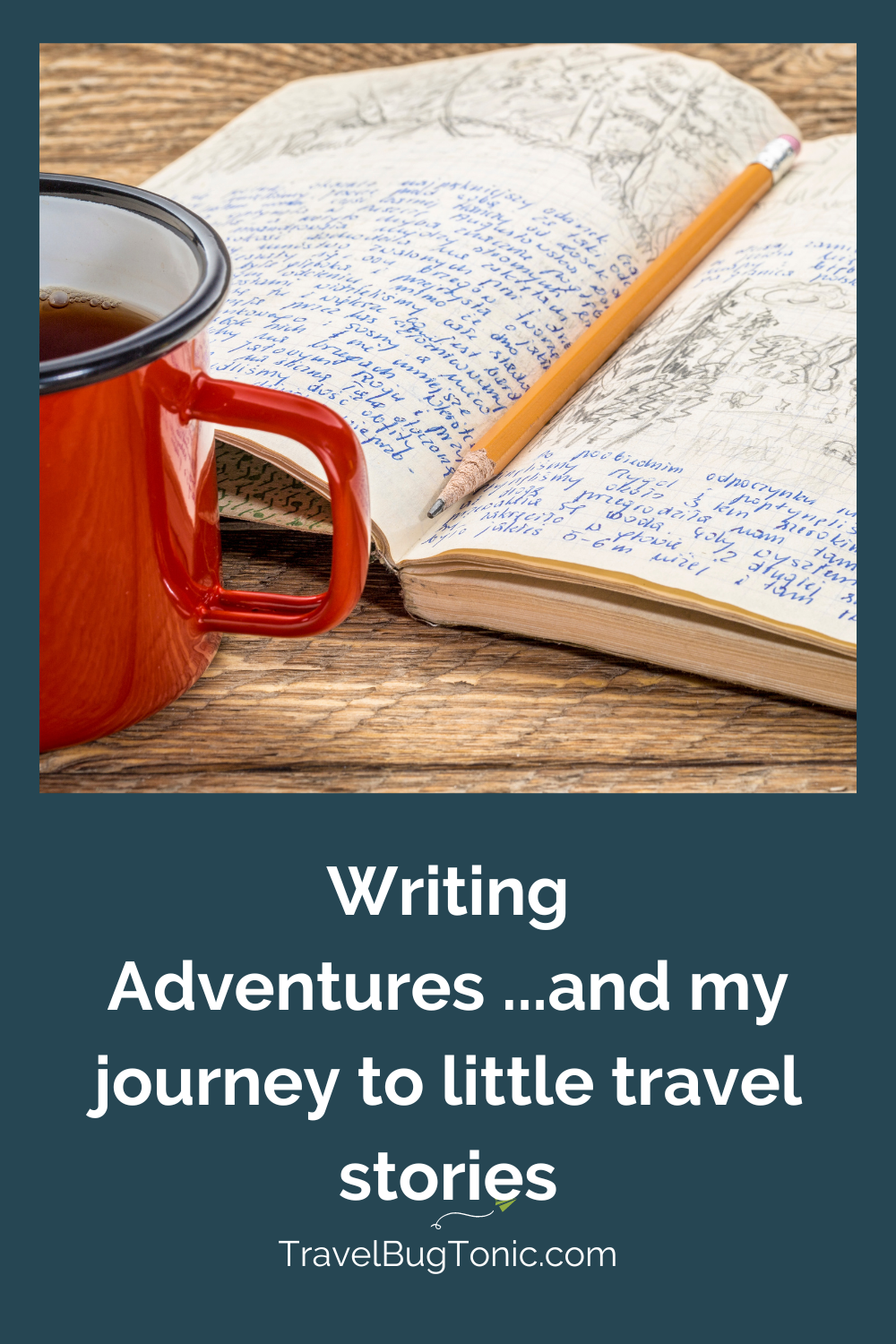Writing adventures and my journey to little travel stories
“Travelling - it leaves you speechless, then turns you into a storyteller.”
One of the many amazing outcomes of travel is the stories! Sometimes they are travel stories of adventure and misadventure, sometimes they are the stories behind the adventure - the extraordinary little things you learn about the place and about yourself because of being in that place.
Travel stories are so much more valuable (in a life affirming sense) than souvenirs. They don’t take up luggage space, we can share them freely, and they help us make sense of our experiences. We humans tend to search for the meaning of things. Stories play a role in that ongoing search. They help us see the world a little differently, sometimes a little clearer. When we are open to becoming a collector and creator of stories, we slow down, notice details, and are alert to the interesting nuances of an experience.
A dear friend bought me a book by Laura Pashby called Little Stories of Your Life. It is beautiful, inspiring, and very practical about becoming a ‘little story’ storyteller. The author writes, “In the simplest of terms, a story - whether fictional or from life - can be reduced to the understanding that somewhere, sometime, something changed….An impactful story will open the readers eyes to new feelings or possibilities, altering their comprehension.” Like Pashby, I believe that travel can change you and your travel stories can help to capture and celebrate those changes in knowledge, acceptance, perspective, or confidence.
One of my most popular blog posts is a collection of travel stories about awe contributed by 10 fellow traveller writers. I learned so much about each of them as well as about how people uniquely experience a single emotion. I learned what activities sparked awe for these women and I know that I can try similar activities in my own travels (or even in my day to day life).
“There is no greater agony than bearing an untold story inside you.”
Maya Angelou
Don’t let writing travel stories be intimidating
There is a Harvard Business article that describes storytelling as an art and a science. It is the blend of the creative with the structure of science. Data and facts are always more impactful within a story. When you boil it down, a good story simply shares an emotion along with the details. But you don’t need to be a “writer,” artist or scientist to write stories, just like you don’t need to be a “singer” to join a sing-a-long!
“Take back your writing from school, university or work, whoever you last had your efforts marked and maybe found wanting. Words are yours to use as you choose - in sentences or not, neatly or otherwise. Don’t think about writing as something you are or are not “good” at, but as something that belongs to you: a path from your heart to the page.” Laura Pashby
I recently finished a wonderful online writing workshop with @agelesspossibilites. Women Rowing North: Writing our Life Stories provides a dedicated and supported space for women to reflect and write about their lives. Every week participants wrote a story that emerged from a writing theme or prompt. It was a fun challenge to allow the prompt or question to spark a memory. I would simply begin to explore that memory by telling its story and as each simple story took shape, connections between the story and other memories were sparked. Sometimes I uncovered an assumption I held or I’d be shaken with an aha moment about myself. The workshop invited us to read our stories out loud and then receive feedback. The feedback was not about writing technique or story structure…it was far more amazing. The feedback was how each listener reacted to the story…what they learned about me from my story or even learned something about themselves from my story. It was brilliant to both share as well as to listen to the stories of others.
How to get started writing your little travel stories
The Artist's Way by Julia Cameron suggests tapping into your creativity with Morning Pages. She describes them as three pages of longhand, stream of consciousness writing, done first thing in the morning. They are about anything and everything that crosses your mind– and they are for your eyes only. “Morning Pages provoke, clarify, comfort, cajole, prioritize and synchronize the day at hand.” I want to be that person who wakes up before the sun rises and completes “morning pages” as coffee is brewing. Alas, I am not...yet.
Interestingly, participants in the writing workshop were evenly split. Some did morning pages faithfully and credited the daily practice with benefits of generating ideas, clearing brain clutter and easing into a flow of words. Some had tried it, but it didn’t work for them. They found their writing groove at different times of day and with prompts instead of a free flow of words. I tried, I really did. I set my alarm early, set up a writing space with a candle, and filled some pages. But, probably like meditation, it takes practice and commitment both of which fizzled out. Right now, I am more inspired to write in response to a prompt that provides purpose and direction, and/or to meet a self-imposed deadline.
Unless you are a natural writer, it can take some time to find your way into writing your travel stories and I’m still figuring it out. (I love being a beginner!) In 2019, I carried an empty journal around Scotland and Ireland! While there were no travel stories on the pages, I took a lot of photos. I love making photo books and my Scotland Book was the first in which I included a significant amount of words and descriptions along with photos. Looking at it now, the pictures leave many gaps and I am constantly reminded that photos don’t capture everything! I’m glad, however, I spent the time to incorporate a few bits and pieces of writing.
In my recent travels, I once again had full intention to capture the day-to-day stories and observations in a travel journal. I even took an online course on how to journal while travelling. Again, I failed miserably. The course had some great ideas - I just didn’t implement them!
In 2022, on a trip to Spain and Portugal, I brought home a partially used journal. Yay!! This time, however, since I had already started Travel Bug Tonic, these journal notes were used to help me write a daily mini-story or caption on social media. These mini-stories have been invaluable to me in creating my latest photo books and trigger the deeper, more important stories behind each day’s events. I also appreciated the daily deadline for that additional ‘push’ to get it done.
My Travel Stories
I have learned that stories come easier and are more engaging with practice. The same can be said for photography, for cooking, even for travelling! Writing practice takes time, persistence and consistent effort. Just as the daily mini-stories motivated me to write, the accountability of the workshop helped me get my stories written. Choosing themes from the Bold Action Guide: Transform your ‘bucket list’ to travel bliss, I’ve challenged myself to write based on common travel emotions.
Read about feeling interested, challenged, strong, and mindful.
And please subscribe as I commit to ongoing storytelling!
“No story lives unless someone wants to listen.”
Have you received my free BOLD ACTION GUIDE to transform your “bucket list” to TRAVEL BLISS?





